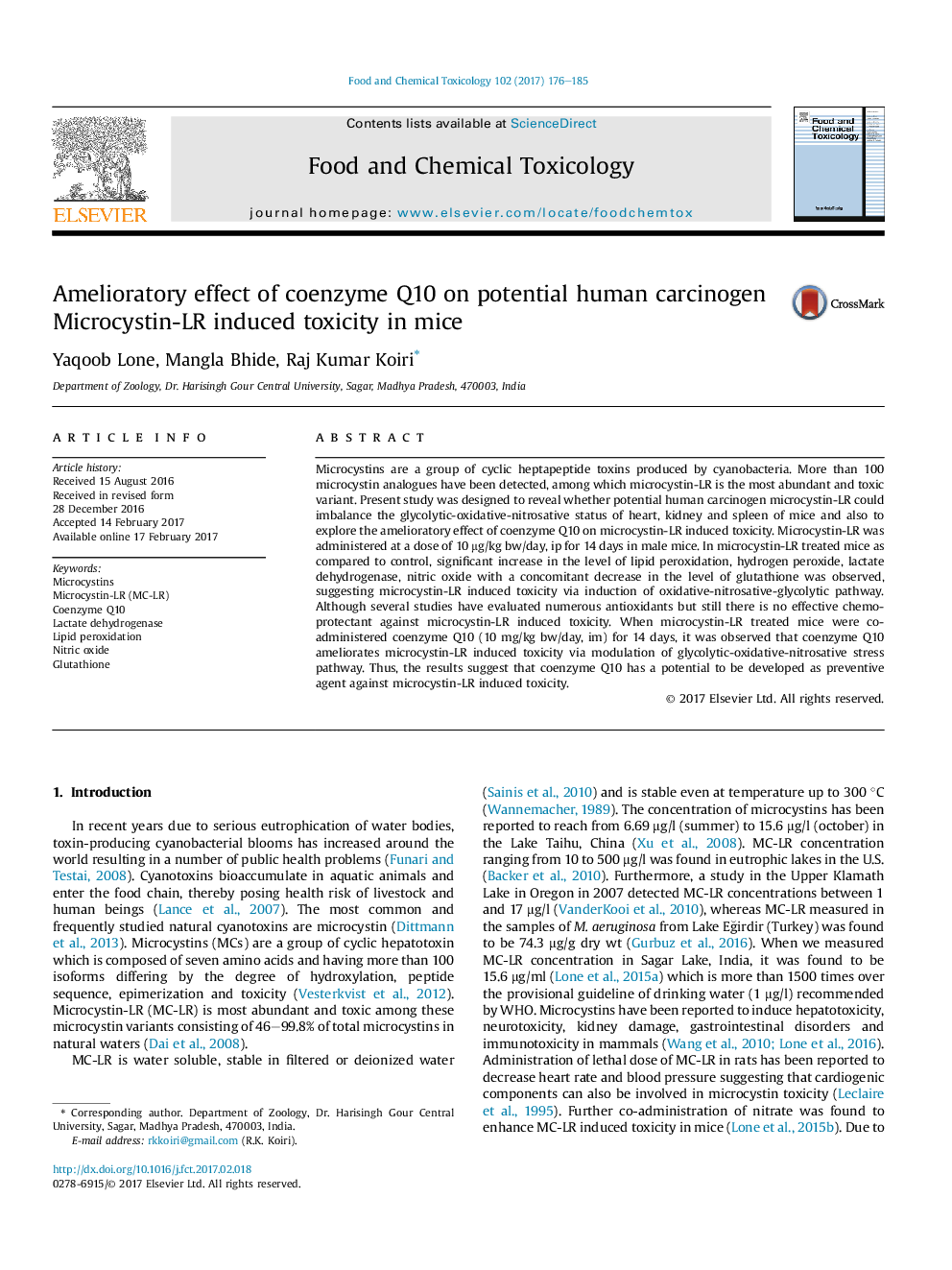| Article ID | Journal | Published Year | Pages | File Type |
|---|---|---|---|---|
| 5560262 | Food and Chemical Toxicology | 2017 | 10 Pages |
â¢MC-LR induced toxicity via induction of oxidative-nitrosative-glycolytic pathway.â¢CoQ10 ameliorates MC-LR induced toxicity in heart, kidney and spleen of mice.â¢CoQ10 prevents oxidative damage of biomolecules.â¢CoQ10 can be developed as preventive agent against MC-LR-induced toxicity.
Microcystins are a group of cyclic heptapeptide toxins produced by cyanobacteria. More than 100 microcystin analogues have been detected, among which microcystin-LR is the most abundant and toxic variant. Present study was designed to reveal whether potential human carcinogen microcystin-LR could imbalance the glycolytic-oxidative-nitrosative status of heart, kidney and spleen of mice and also to explore the amelioratory effect of coenzyme Q10 on microcystin-LR induced toxicity. Microcystin-LR was administered at a dose of 10 μg/kg bw/day, ip for 14 days in male mice. In microcystin-LR treated mice as compared to control, significant increase in the level of lipid peroxidation, hydrogen peroxide, lactate dehydrogenase, nitric oxide with a concomitant decrease in the level of glutathione was observed, suggesting microcystin-LR induced toxicity via induction of oxidative-nitrosative-glycolytic pathway. Although several studies have evaluated numerous antioxidants but still there is no effective chemoprotectant against microcystin-LR induced toxicity. When microcystin-LR treated mice were co-administered coenzyme Q10 (10 mg/kg bw/day, im) for 14 days, it was observed that coenzyme Q10 ameliorates microcystin-LR induced toxicity via modulation of glycolytic-oxidative-nitrosative stress pathway. Thus, the results suggest that coenzyme Q10 has a potential to be developed as preventive agent against microcystin-LR induced toxicity.
